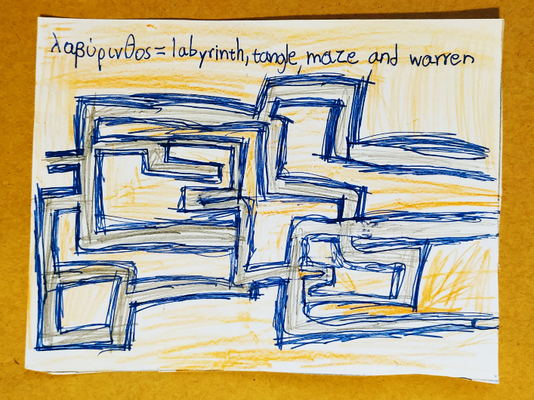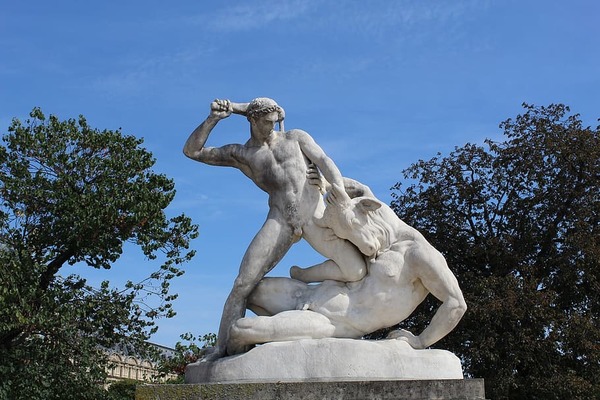The Minoan civilisation was a Bronze Age Aegean civilisation on the island of Crete and other Aegean Islands, whose earliest beginnings were from c. 3500 BC, with the complex urban civilisation beginning around 2000 BC, and then declining from c. 1450 BC until it ended around 1100 BC, during the early Greek Dark Ages. It represents the first advanced civilisation in Europe, leaving behind a number of massive building complexes, sophisticated art, and writing systems. Its economy benefited from a network of trade around much of the Mediterranean.
The civilisation was rediscovered at the beginning of the 20th century through the work of British archaeologist Sir Arthur Evans. The name "Minoan" derives from the mythical King Minos and was coined by Evans, who identified the site at Knossos with the labyrinth and the Minotaur. The Minoan civilisation has been described as the earliest of its kind in Europe, and historian Will Durant called the Minoans "the first link in the European chain."
British English: civilisation or civilization
American English: civilization
labyrinth: We eventually realized that we were lost in the labyrinth of hallways in the museum.
tangle: She had got herself in a tangle and couldn't see a way out.
maze: The mansion had a beautifully landscaped maze that was constructed of tall cypresses.
warren: Wild rabbits live in a warren. Andreas Sotiralis
Andreas Sotiralis

Theseus Fighting the Minotaur by Étienne-Jules Ramey (1826)
Tuileries Garden, Paris, France